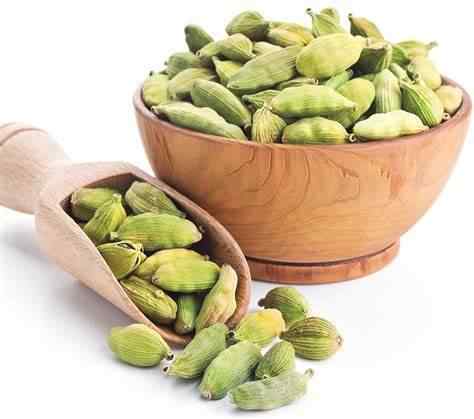Cardamom, a flavorful and aromatic spice, has been cherished for centuries not only for its culinary uses but also for its potential health benefits. Among its various advantages, one notable aspect is its potential in assisting with high blood pressure management. In this article, we will delve into the world of cardamom and explore its effects on high blood pressure, backed by scientific insights and studies.
Understanding Cardamom
Cardamom, often referred to as the “Queen of Spices,” originates from the ginger family and is native to the Indian subcontinent. Its unique taste profile features a combination of citrusy, minty, and slightly sweet flavors, making it a popular addition to both sweet and savory dishes.
Cardamom’s Impact on High Blood Pressure
Recent studies have indicated that cardamom might play a role in managing high blood pressure, a condition that affects millions worldwide. High blood pressure, or hypertension, is a significant risk factor for heart disease and stroke. Cardamom contains compounds that exhibit potential antihypertensive effects, which could help in reducing blood pressure levels.
The Role of Antioxidants
One of the key reasons behind cardamom’s potential benefits is its rich antioxidant content. Antioxidants are substances that combat oxidative stress and inflammation in the body. By reducing oxidative stress, cardamom may contribute to improved blood vessel function, subsequently aiding in blood pressure regulation.
Cardiovascular Health Benefits
Cardamom’s impact on blood pressure is closely linked to its positive effects on cardiovascular health. Studies suggest that the spice could assist in lowering both systolic and diastolic blood pressure readings. Additionally, cardamom may contribute to improving lipid profiles by reducing levels of “bad” LDL cholesterol, further promoting heart health.
Incorporating Cardamom into Your Diet
Integrating cardamom into your daily diet is a convenient and delicious way to potentially reap its benefits. You can add it to your morning smoothies, oatmeal, or even brewed beverages. Furthermore, cardamom can be used in cooking to enhance the flavor of a variety of dishes, from curries to baked goods.
Scientific Research and Studies
Scientific exploration into cardamom’s effects on blood pressure is still relatively young, but initial findings are promising. Researchers have conducted studies on animals and humans to understand the spice’s impact better. However, more extensive and rigorous research is needed to establish clear guidelines for cardamom consumption for blood pressure management.
Other Health Benefits of Cardamom
Beyond its potential influence on blood pressure, cardamom offers an array of other health benefits. It has been linked to improved digestion, reduced inflammation, and even potential anti-cancer properties. Incorporating cardamom into your diet may contribute to an overall healthier lifestyle.
Potential Side Effects and Precautions
While cardamom is generally considered safe for consumption in culinary amounts, some individuals may experience allergic reactions. As with any supplement or addition to your diet, moderation is key. If you’re on medication for blood pressure or other conditions, it’s advisable to consult your healthcare provider before making significant dietary changes.
FAQs about Cardamom and Blood Pressure
Q. Can cardamom replace blood pressure medication?
A. Cardamom should not be considered a replacement for prescribed medications. Consult your doctor before making any changes to your treatment plan.
Q. How much cardamom should I consume daily for potential benefits?
A. The optimal dosage is yet to be determined. It’s best to use cardamom in moderation as part of a balanced diet.
Q. Are there different types of cardamom with varying benefits?
A. Green and black cardamom are the most common varieties, each with its unique flavor profile. Both may offer potential health advantages.
Q. Can pregnant women incorporate cardamom into their diets?
A. Pregnant women should consult their healthcare provider before making any dietary changes, including the addition of cardamom.
Q. Is there a risk of overdose with cardamom?
A. Cardamom is considered safe when used in culinary amounts. Excessive consumption may lead to gastrointestinal discomfort.
Conclusion
Incorporating cardamom into your diet can be a flavorful way to potentially support your cardiovascular health and blood pressure management. While research is ongoing, the spice’s antioxidant properties and positive effects on blood vessels make it a promising addition to a balanced lifestyle. Remember, moderation is key, and consulting your healthcare provider before making significant dietary changes is always wise.
